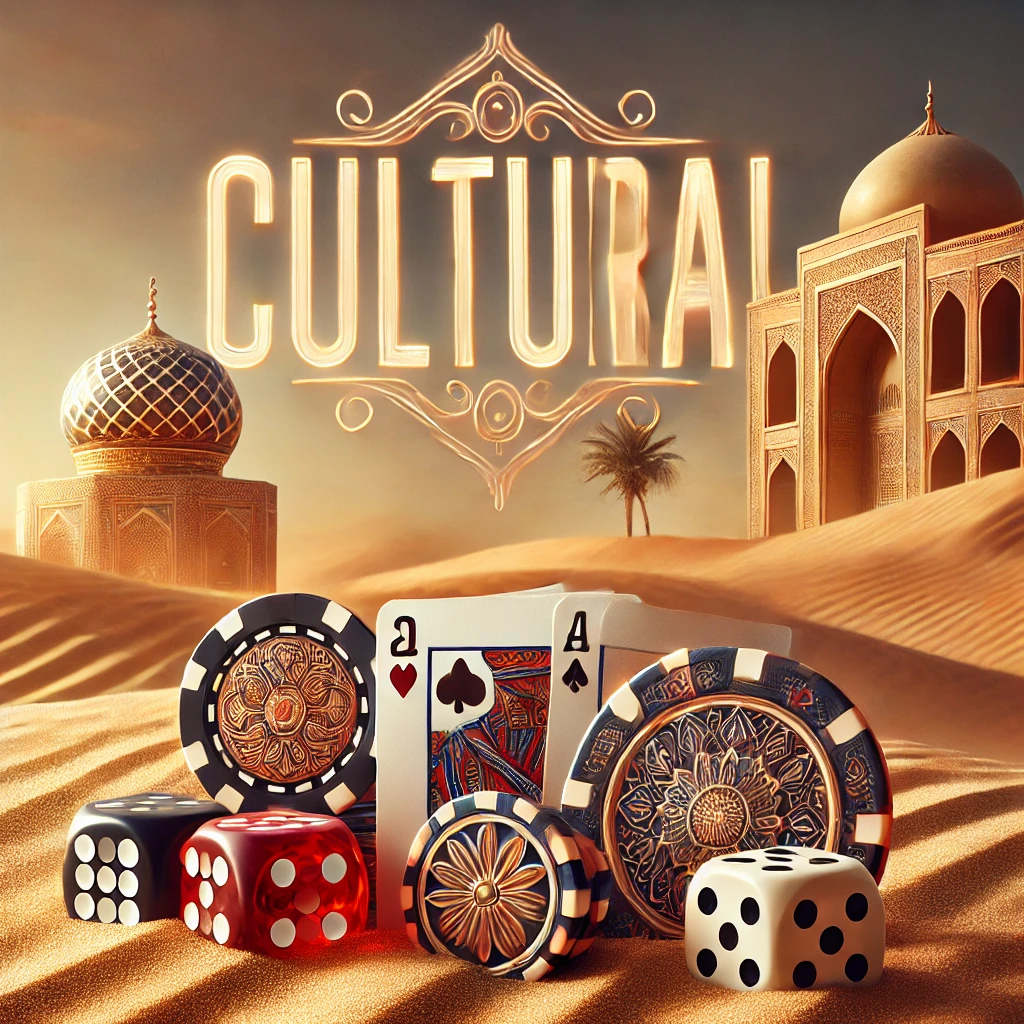When you consider the historical context of gambling, the Islamic perspectives on wagering, and the legal frameworks in place, you'll begin to understand the complex cultural landscape of the GCC. The societal attitudes towards gambling in countries like Saudi Arabia, UAE, and Qatar aren't just shaped by laws but deeply embedded in traditional values and religious beliefs. These influences create a unique environment where modern economic pressures clash with age-old norms. So, how do these elements interact to shape the current state of gambling in the GCC?
Historical Context of Gambling
Although gambling has a long and complex history, its presence in the Gulf Cooperation Council (GCC) countries has always been shaped by cultural and religious norms. If you immerse yourself in the GCC's cultural landscape, you'll notice that traditional activities and community gatherings often emphasize collective enjoyment over individual gain. These cultural traditions act as a social fabric, reinforcing norms that prioritize mutual support and ethical behavior.
As you observe daily life in places like Saudi Arabia, the UAE, and Qatar, it's evident that religious prohibitions play a significant role in shaping behaviors. Islamic teachings, deeply embedded in the social consciousness, discourage gambling due to its association with moral and financial corruption.
This cultural and religious synergy creates an environment where gambling isn't just legally restricted but also socially stigmatized.
Islamic Perspectives on Gambling
Many Islamic perspectives on gambling stem from foundational texts and teachings that emphasize ethical conduct and community well-being. As you observe the daily lives of devout Muslims in the GCC, you'll notice that their actions and decisions often reflect these principles.
The Quran, the central religious text of Islam, explicitly prohibits gambling, referring to it as "maisir". Islamic rulings classify gambling as haram, meaning forbidden, due to its potential to incite greed and disrupt social harmony.
When you engage with community members, you'll hear them discuss the moral implications of gambling. They often highlight how it can lead to financial ruin and strained relationships, which are seen as detrimental to the fabric of society.
The teachings of the Prophet Muhammad also emphasize the importance of hard work and earning one's livelihood through honest means. Gambling, in contrast, is viewed as an attempt to gain wealth without effort, which contradicts these values.
Your observations will reveal that, for many Muslims, adhering to these Islamic rulings isn't merely about following rules, but about fostering a sense of collective responsibility. This perspective shapes how gambling is perceived and practiced within the community.
Legal Frameworks and Regulations
As you delve into the legal frameworks and regulations surrounding gambling in the GCC, you'll find a complex tapestry of laws influenced by both religious doctrine and state governance. In these societies, cultural perceptions of gambling are deeply rooted in Islamic teachings, which generally prohibit gambling as haram. However, each GCC country interprets and enforces these prohibitions differently, reflecting a blend of traditional values and contemporary challenges.
When observing regulatory compliance, you'll notice that some GCC nations adopt a stringent approach, outright banning all forms of gambling. For instance, Saudi Arabia enforces strict penalties for those caught engaging in such activities.
Conversely, other countries like the UAE exhibit a more nuanced stance, where specific forms of gambling, such as horse racing and raffles, are permitted under tightly controlled conditions.
Engaging with local communities and authorities reveals an ongoing negotiation between maintaining religious integrity and adapting to modern economic pressures. Cultural perceptions shift subtly depending on the context, yet the overarching narrative remains one of cautious regulation. By understanding these complex legal frameworks, you gain insight into how the GCC navigates the delicate balance between tradition and modernity.
Modern Forms of Wagering
Stepping into the bustling centers of cities like Dubai and Doha, you'll quickly notice how modern forms of wagering have woven themselves into the fabric of daily life. Wander through these urban landscapes, and you're likely to encounter a discreet yet thriving scene of online betting. This digital transformation reflects a shift from traditional, clandestine gambling practices to more accessible, technology-driven forms.
Observing the locals, you'll see that smartphones and laptops serve as gateways to various online betting platforms. These platforms offer a plethora of options, from sports betting to virtual casinos, allowing users to partake in gambling from the comfort of their homes. The convenience and anonymity provided by online betting have made it particularly appealing in regions where gambling is closely scrutinized.
Moreover, casino tourism is emerging as another significant trend. While local gambling laws remain stringent, nearby destinations like Lebanon and the broader Middle East serve as hotspots for GCC residents seeking a more immersive wagering experience. These casino resorts offer not just gambling but a full package of entertainment, dining, and luxury, drawing affluent tourists from the GCC.
Thus, modern forms of wagering in the GCC reveal a complex interplay between tradition, technology, and tourism.
Societal Attitudes and Trends
Navigating through the cultural landscape of the GCC, you'll observe a fascinating mosaic of societal attitudes towards gambling. As you engage with the community, you'll notice that public perceptions are heavily influenced by deep-rooted cultural norms and religious beliefs.
Islam, the predominant faith in the region, strictly prohibits gambling, labelling it as "haram" or forbidden. This religious stance permeates everyday life and shapes a collective disapproval towards gambling activities.
When you talk to locals, you'll find that many equate gambling with moral decay and social disruption. There's a strong emphasis on preserving community integrity, and gambling is often seen as a threat to this cohesion. During conversations in social gatherings or public forums, participants express concerns about the potential for addiction and financial ruin, further reinforcing negative public perceptions.
However, societal attitudes aren't entirely homogenous. Younger generations, exposed to global influences through social media and travel, sometimes exhibit more lenient views. They might see gambling as a form of entertainment rather than a moral failing. Yet, even among these groups, the prevailing cultural norms act as a significant counterbalance, ensuring that traditional values remain influential.
Conclusion
In exploring the cultural influences on gambling in the GCC, you'll find a rich tapestry of historical context, Islamic perspectives, legal frameworks, modern wagering forms, and evolving societal attitudes. You'll see how traditional values clash with economic pressures, how religious beliefs shape regulations, and how social norms define behaviors. You'll observe, firsthand, the intricate balance between maintaining cultural integrity and navigating contemporary challenges in a region where gambling remains a deeply contentious issue.



